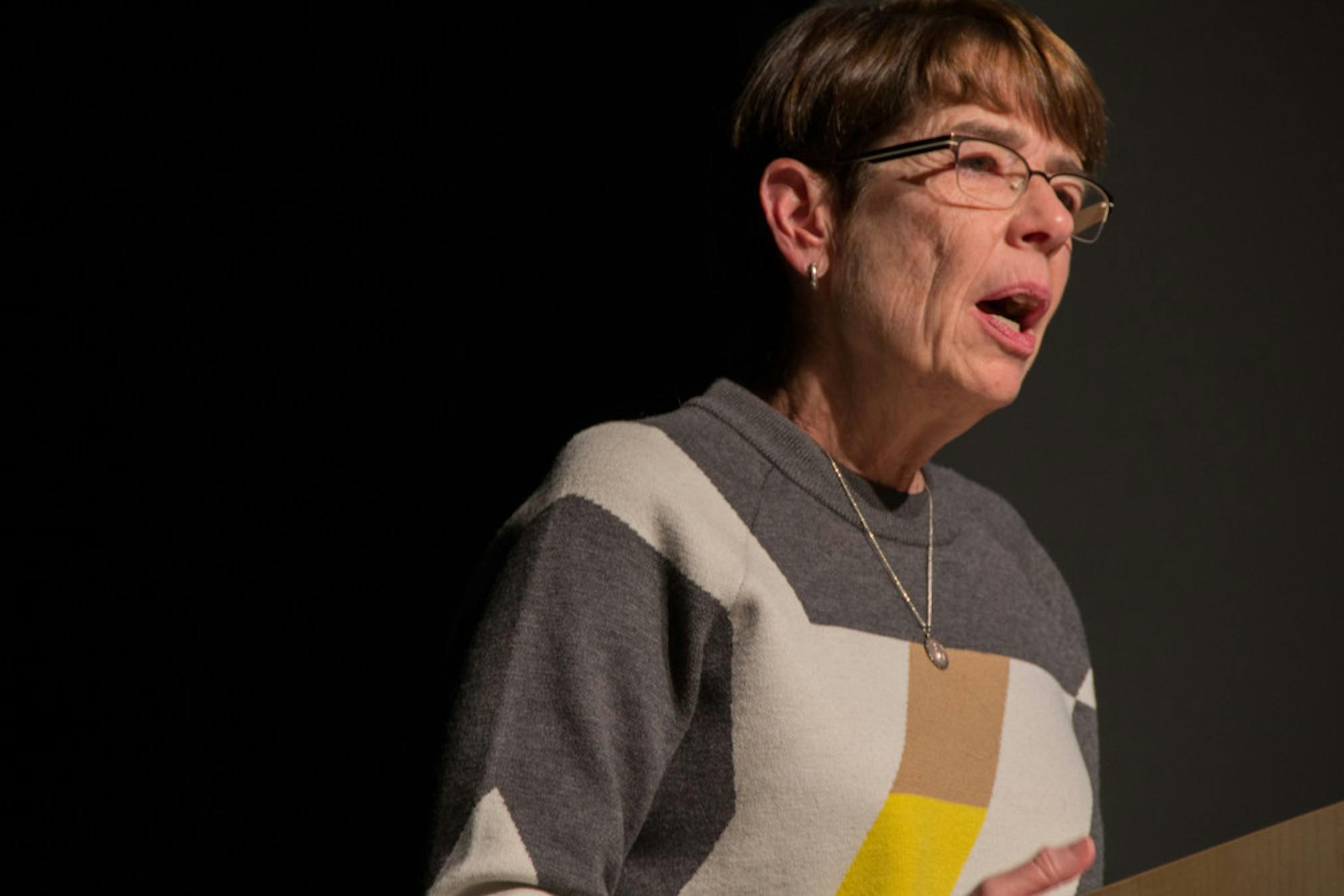Last night, Sister Mary Scullion of Philadelphia discussed her experiences advocating for the homeless through Project HOME, an organization she co-founded in 1989. The lecture was held in the Cohen Auditorium as a part of Tufts Hillel's annualMerrin Moral Voices Lecture Series.
The lecture began with an introduction by the Neubauer Executive Director of Hillel, Rabbi Jeffrey Summit, which was followed by another introduction by Moral Voices Co-chair, senior Erica Tooch. Tooch explained that each year, Moral Voices chooses a central cause to support, and the group decided to focus on homelessness in America this year.
During the lecture, Scullion, who was named by the Time Magazine as one of the 100 most influential people in the world in 2009, described her work at Project HOME in alleviating homelessness in Philadelphia, where the organization was founded.
According to the organization's website, Project HOME's overarching mission is “to empower adults, children and families to break the cycle of homelessness and poverty, to alleviate the underlying causes of poverty and to enable all of us to attain our fullest potential as individuals and as members of the broader society.”
Initially, the organization worked to address the issue of chronic homelessness among women, a large portion of whom suffered from mental disabilities, Scullion said. She also explained that she, and the rest of Project HOME, have been largely responsible for rebuilding the poorest areas of Philadelphia by bringing in resources to strengthen the communities such as education centers, community gardens and affordable housing.
Scullion was accompanied by her colleagues David Brown and Tanya Clanton, both of whom had formerly been homeless and opened up to the audience about their personal experiences.
Brown was homeless for 25 years before finding out about Project HOME. To him, giving the homeless a "HOME" is the most important thing one can do, he said.
“The H stands for housing, the O for opportunity, M for medical and E for education," he said, explaining the acronym for the organization's name. "HOME gave us a voice; they gave us [an] opportunity."
Brown noted that he was illiterate until discovering the services of Project HOME and attributes his ability to succeed to the education provided to him through the organization.
Clanton, alternatively, was homeless for two years with her three children.
“I was addicted to coke and alcohol,” she said, explaining her experience with homelessness.
Clanton is now 18 years clean, which allows her to work within the School District of Philadelphia and maintain a stable income, she said.
In an earlier discussion with Scullion, Clanton and Brown at Hillel at 4:30 p.m. yesterday afternoon, Clanton recounted her experience striving for sobriety, detailing the struggles of having to pass through the same neighborhood where she used for a long time.
She explained that she would always give a dollar or two to the people in that neighborhood but then transitioned to buying them a meal and giving them a token for the bus. She stressed how important it is to readjust one's habits in order to help, rather than hurt, the population in question.
During the discussion at Hillel, Scullion emphasized the importance of caring and preserving human dignity when speaking to or interacting with the homeless population. Oftentimes, she explained, a simple conversation can go a long ways in helping raise the spirit of a homeless person. This particular subset of the population is too often looked at with scorn or embarrassment, which she noted does not alleviate the situation.
Scullion also noted in the lecture that homelessness is a larger societal issue, which tugs at the very fabric of American society.
“Mental illness, addiction and physical disabilities are all equal opportunity diseases," Scullion said. "And when you’re poor, that’s enough to put people on the street."
Scullion also noted that homelessness is “symptomatic of our deeper societal problems," stating that tackling these deeper societal issues head on is the only way of eliminating homelessness.
However, there is already a large population of people whom the system has already failed, she explained in the discussion. Right now, she said she believes that helping these individuals is the best thing we as a society can do.
Brown agreed, adding that simply speaking to a homeless person as if they are human, and making them feel visible and important can help their morale and heighten their spirits. Many of the homeless on the street feel invisible, being looked past every single day as they struggle to stay alive and feed themselves.
“Nothing happens in one day,” Scullion said, noting that American homelessness should be dealt with in a similar fashion. “It’s all a progression."
Sister Mary Scullion discusses efforts against homelessness as this year's Moral Voices initiative

Sister Mary Scullion talks to the Tufts community about ending homelessness on Feb. 3.





